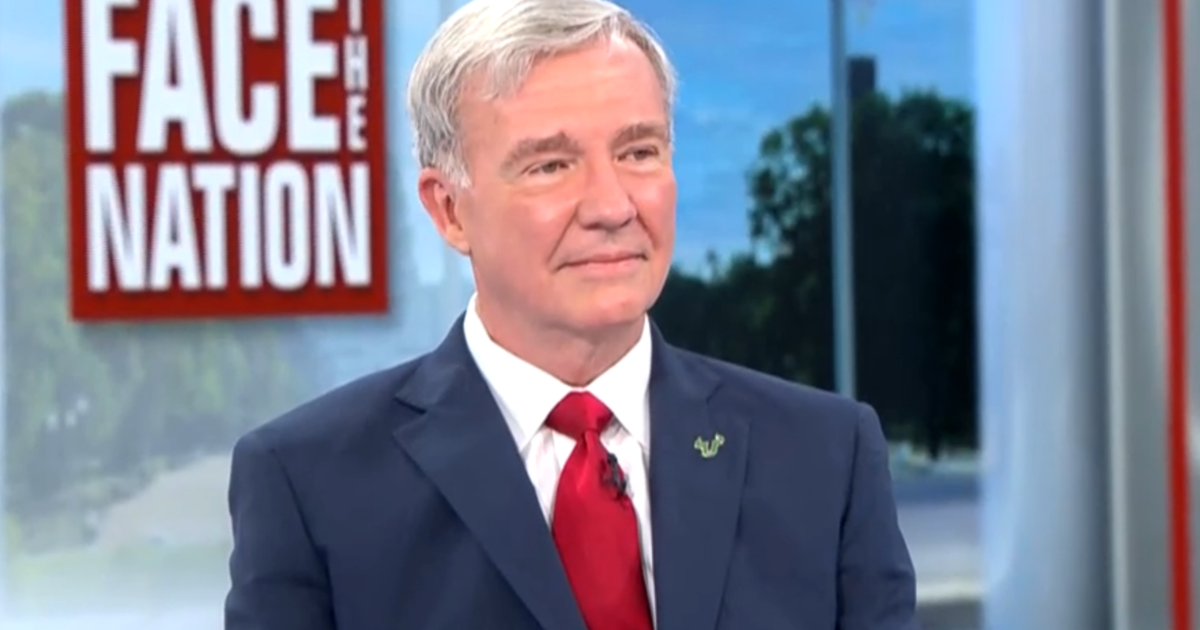
The following is a transcript of an interview with former commander of U.S. forces in the Middle East, retired General Frank McKenzie, on “Face the Nation” that aired on June 2, 2024.
MARGARET BRENNAN: We’re joined now by the former commander of US forces in the Middle East, retired General Frank McKenzie. His new book The Melting Point is available this Tuesday. Good to see you, sir.
FORMER COMMANDER OF US FORCES IN THE MIDDLE EAST GENERAL FRANK MCKENZIE: Good to be here.
MARGARET BRENNAN: So on Friday, President Biden said that Hamas is no longer capable of carrying out another October 7. When you were last with us in February, you said Israel’s success has been very limited. Do you think they can declare success now?
GEN. MCKENZIE: I think they’re a lot closer than they were a few months ago. I still think Hamas political and military leadership exists largely whole. A lot of their combat formations have been destroyed. But I think Hamas has been significantly attritted.
MARGARET BRENNAN: You also have raised a few times in the past few months concerns about America’s continued presence in the Middle East which you say is crucial here. Right now, we are seeing so many different flashpoints, one of them in the Red Sea where our CBS’ David Martin reported the US used a 5,000 pound bunker buster bomb in Yemen just this past week. Houthis are attacking shipping. We have concerns about the troop safety in Syria and in Iraq. Does it need to continue?
GEN. MCKENZIE: Well, I think we remain the critical nation in the Middle East. I think everybody looks to us to be the honest broker. If we take the situation with the Houthis as simply one example, I would argue that we’ve been too passive. We’ve allowed the Houthis really to dominate global maritime communications by closing down, effectively, the Suez Canal. And that is something that’s not only bad for the United States but for many other nations around the world. Has nothing to do actually with Israel or the conflict in Gaza. Rather, it’s a larger principle for the United States. But we’ve essentially been catching and not pitching in this conflict despite deploying multibillion dollar warships into the Red Sea. The sign that we’re dropping larger bombs may be a good thing, but we need to go after the source of the attacks. And the source of the attacks is Houthi leadership and command and control facilities in Yemen. And I would argue that the threat of escalation is very small if we conduct these attacks.
MARGARET BRENNAN: When you say ‘we’, you think the Biden administration.
GEN. MCKENZIE: I think the United States and our allies.
MARGARET BRENNAN: You largely try to avoid politics and directly addressing the presidents you served under in the book that you wrote here. But you have had such a key role in some of these very significant national security decisions: killing the ISIS commander Baghdadi, taking Qasem Soleimani off the battlefield, executing the withdrawal from Afghanistan. And you spread around some blame to past US presidents. But you do point to the Doha Agreement, the withdrawal negotiated by the Trump administration as one of the worst negotiating mistakes ever made by the US.
GEN. MCKENZIE: I think it was. And it was- and also by the way, we implemented the agreement. Had we actually stuck to the strict terms of the agreement, we might have been able to make something of it. But in fact, we treated the Doha Agreement as a schedule for us to depart Afghanistan. And that policy objective remained across two presidents, President Trump and President Biden, when in fact there were procedures in the Doha Agreement if we had respected them that would require the Taliban to do certain things in return. We did not require that. And effectively, I would argue that the Doha Agreement was the operational mechanism that killed Afghanistan, that destroyed the government of Afghanistan because they saw we were eager to leave regardless of cost. And that was a very important and deflating thing, I think, for the government of Afghanistan.
MARGARET BRENNAN: But as you point out, that was across two presidents-
GEN. MCKENZIE: Absolutely.
MARGARET BRENNAN: Biden and Trump.
GEN. MCKENZIE: Margaret, I would argue that President Trump and President Biden were as unalike as any two presidents in our history, but they both shared a policy objective of leaving Afghanistan regardless, really, of consequences.
MARGARET BRENNAN: You wrote the- you drafted resignation letters a few times, but the only time you actually came close was after that withdrawal from Afghanistan and a drone strike August 29 that was intended to kill ISIS but killed civilians. If you had such strong objections, why was that the moment where you almost resigned and not others?
GEN. MCKENZIE: So I feel it’s very important that generals don’t resign over policy differences. That’s not good for the Republic. It’s not the way that our military system should work. And historically, it’s not the way it has worked back to the Korean War, back to the Second World War. Many generals, many senior generals disagreed with presidential decisions, but they did not resign. So I did not feel it was appropriate to resign. In my particular case, if there had been discussions of charging my subordinates, then I felt it was necessary for me to actually accept part of that blame. Now we did not do that.
MARGARET BRENNAN: Right. You stayed on. You in the book talk quite a lot about conversations you had around how to implement the withdrawal from Afghanistan and the planning for it, particularly with the Trump administration. At one point, you say the Chief of Staff to President Trump, Mark Meadows, advised not to present certain options out of concern he’d choose them, like going to zero in Afghanistan. You wrote Trump made the decision to kill Qasem Soleimani, but his national security advisors were telling him, ‘There won’t be any consequences for it,’ which is not what US Intelligence said, and that is not what US CENTCOM thought. Why is it important for the public to know that the people around the commander-in-chief were either not sharing the full picture with him or changing what he was allowed to see?
GEN. MCKENZIE: Well, every president whether the- either the last two- have advisors that give him all kinds of different opinions. The military input that comes in is one part of that. And that was my- I was relentlessly focused on that. Every president also has to make political calculations, not just these two presidents, but presidents as far back as President Roosevelt in the Second World War had to balance internal US political objectives with what was going on around the world. So that’s not new or unusual in these times. I think in the case of Qasem Soleimani, I think President Trump made the right decision. I do not believe ultimately we made the right decision in Afghanistan, and I’ve been pretty clear about that in open, in open testimony, and that goes across two presidents.
MARGARET BRENNAN: But it is cherry picking, right, information to present to the commander-in-chief when he has to make a call, and you write about the internecine bickering, you say, and finger pointing that followed Trump political appointees at the Pentagon. You wrote- about the choice of drawing down to 2500 troops, you say you don’t even know where that number came from. It was kind of arbitrary. And there was an incident in which a mysterious signed letter appeared saying- withdraw from Afghanistan, and you hunted that down and it was ultimately discarded. How does something like that happen, with such high consequence, and do you fear that it could happen again if there is a second Trump administration?
MARGARET BRENNAN: Well, Margaret, I think the period of time from the presidential election of 2021 until the inauguration in 2022 was a particularly dangerous time inside the Pentagon. And I believe they’re that that’s where the US military has a role to play. It’s a non-political role. It’s a role where we answer the orders that were given. And at the same time, you have political appointees inside the Pentagon that are appointed by the president, members of his party, and they have their own objectives there. And we respond to orders from the chain of command. It’s very important to know who can actually give orders and who can’t give orders. A lot of people that walk around the Pentagon are not in a position to give orders. The orders flow from the president to the secretary to the combatant commanders. Everyone else has an opinion and those opinions may actually impact the decisions that are made, but they’re not in the chain of command.
MARGARET BRENNAN: General, it is a fascinating read. Thank you for coming on to talk about the book.
MARGARET BRENNAN: Thanks, Margaret.
MARGARET BRENNAN: We’ll be back.

